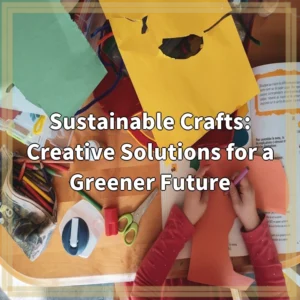What it is:
In recent years, the boat and shipbuilding industry has been increasingly focusing on incorporating eco-friendly materials into their construction processes. Green materials, also known as sustainable or environmentally friendly materials, are those that are sourced, produced, and used in a manner that has minimal negative impact on the environment. These materials are designed to be renewable, recyclable, and non-toxic, ensuring sustainable practices in the marine industry.
Real-World Problems:
The conventional materials and practices used in boat and shipbuilding have had significant environmental consequences. Some of the real-world problems associated with these include:
1. Carbon Footprint:
The manufacturing and utilization of traditional boat and shipbuilding materials, such as fiberglass, aluminum, and certain coatings, result in a high carbon footprint. The extraction, processing, and transportation of these materials contribute to greenhouse gas emissions and global warming.
2. Toxic Waste Disposal:
Many conventional materials used in boat and ship construction, such as certain resins, paints, and varnishes, contain toxic substances. Improper disposal of these materials can lead to environmental contamination, affecting marine ecosystems and posing a risk to human health.
3. Habitat Destruction:
The extraction of materials for boat and shipbuilding, particularly materials like teak, can contribute to deforestation and habitat destruction. This loss of natural habitats can have a detrimental impact on both land and marine biodiversity.
4. Water Pollution:
Boat and shipbuilding often involve processes that release pollutants into the water, such as chemicals used for cleaning, hull maintenance, and antifouling. These pollutants can contaminate water bodies and harm aquatic life, disrupting delicate ecosystems.
5. Non-Renewable Resource Depletion:
Several commonly used materials in boat and shipbuilding, such as fiberglass and certain types of wood, are derived from non-renewable resources. Continued reliance on these materials contributes to the depletion of natural resources and poses sustainability challenges.
Addressing these real-world problems requires a shift towards eco-friendly materials in boat and shipbuilding. By adopting sustainable practices and utilizing greener materials, the industry can significantly reduce its environmental impact and contribute to a more sustainable future.

Solutions for Eco-Friendly Boat and Shipbuilding:
The boat and shipbuilding industry can transition towards more sustainable practices by adopting the following solutions:
1. Utilizing Renewable Materials:
One key solution is to use renewable materials, such as bamboo, recycled plastics, and sustainably sourced wood alternatives like cork or bamboo plywood. These materials can be harvested and replenished without depleting valuable resources.
2. Implementing Non-Toxic Coatings and Paints:
By replacing toxic coatings and paints with non-toxic alternatives, the industry can reduce the negative impact on marine ecosystems. Water-based paints and environmentally friendly coatings are available that provide effective protection without harming the environment.
3. Embracing Lightweight Composite Materials:
Lightweight composite materials, such as flax fiber or bio-based resins, offer a viable alternative to heavy and energy-intensive traditional materials like fiberglass. These materials can contribute to improved fuel efficiency and reduced carbon emissions in vessels.
4. Applying Sustainable Building Techniques:
Implementing sustainable building techniques, such as modular construction and energy-efficient designs, can help reduce waste, energy consumption, and carbon emissions throughout the construction process. Pre-fabrication and modular assembly minimize the need for on-site fabrication and reduce environmental impact.
5. Developing Environmentally Friendly Disposal Practices:
Proper disposal and recycling of boat and shipbuilding materials are crucial to minimize environmental pollution. The industry should develop effective waste management systems, including recycling programs for materials like fiberglass, to ensure responsible end-of-life practices.
By adopting these solutions, the boat and shipbuilding industry can significantly reduce its environmental footprint, alleviate real-world problems, and pave the way for a more sustainable and eco-friendly future of marine transportation.













